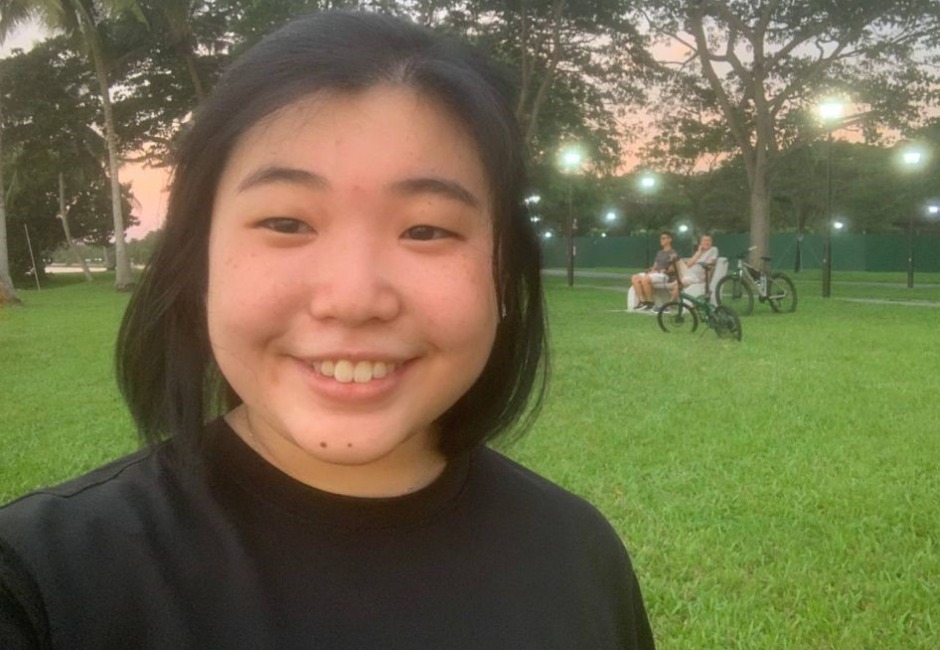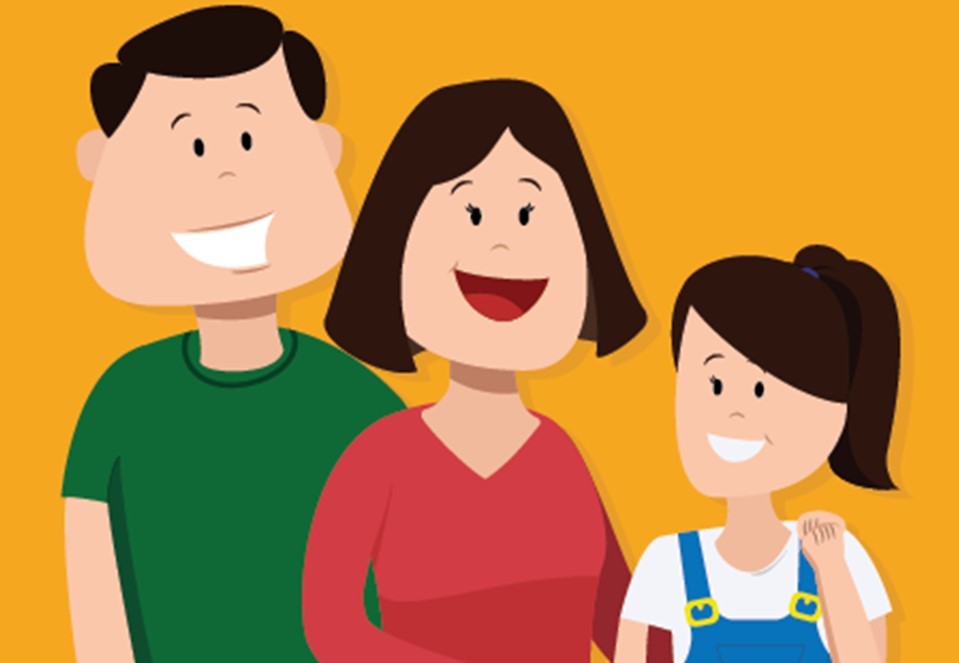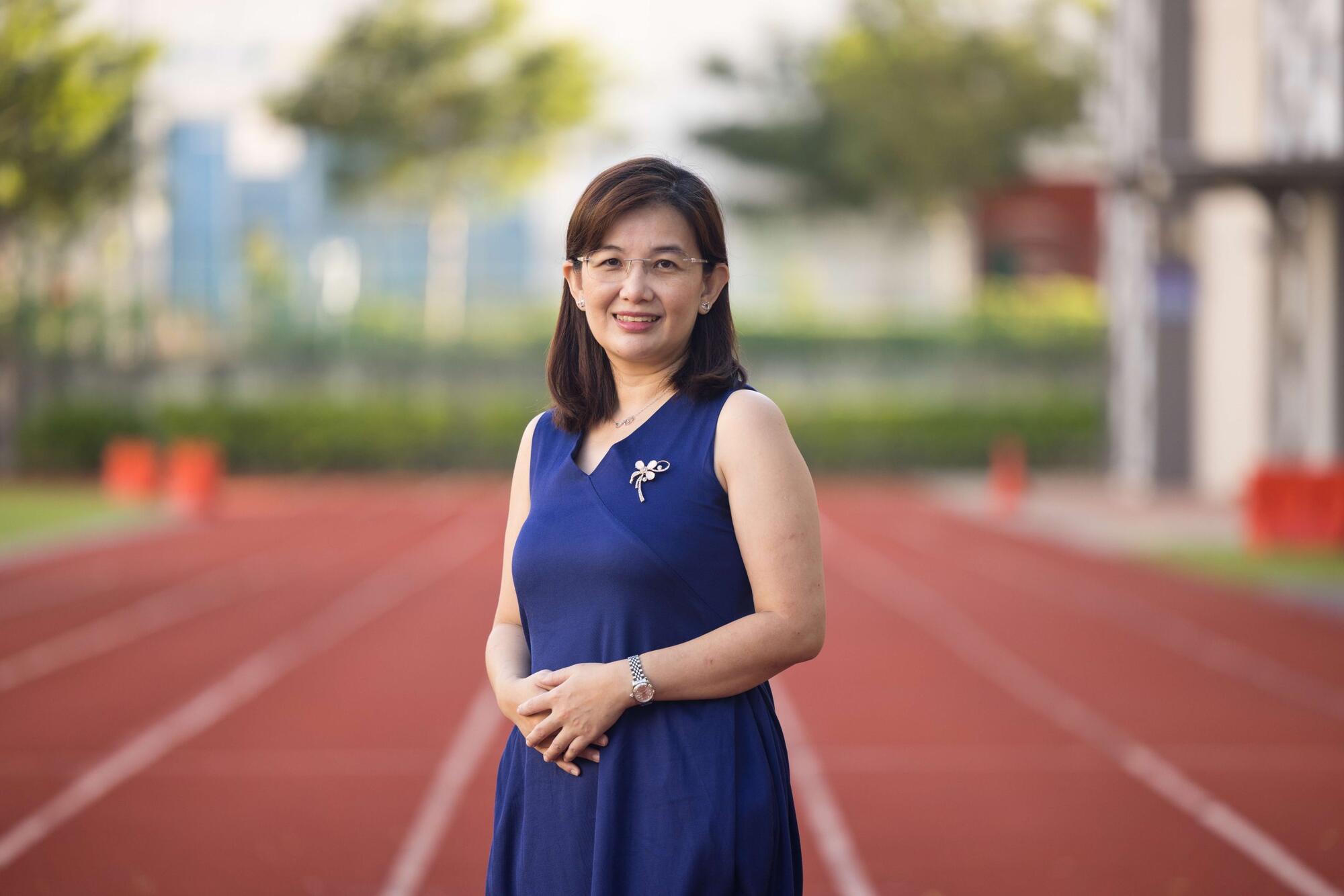When times are tough, having a friend by your side can make a difference in how you tackle life’s challenges. Science backs this up – research shows that strong social connections and caring peer relationships not only improve quality of life, they also buffer against mental health issues.
That’s what student peer support in schools aims to do. Since 2022, all schools in Singapore have implemented a structure where Peer Support Leaders (PSLs) play an active role in looking out for their peers.
Trained to listen actively and respond with empathy, these students complement the schools’ efforts to support their classmates’ mental well-being. Their close relationships with classmates allow them to identify and flag potential issues early, acting as the first line of support.
Speaking to Schoolbag, peer supporters across schools share a unanimous message for youths facing challenges: “You’re never alone.” So how do they lend a listening ear and helping hand? In this first of a three-part series on PSLs, Schoolbag goes behind the scenes at Gan Eng Seng Primary School (GESPS).
“School is a happy place”
Though their Primary 1 days have long past, Primary 4 student Venkatesh Shridev and Primary 6 student Nguyen Marie Minh Chau still remember their nerves during their first week in primary school.
Shridev struggled to adapt to the new environment. Marie felt overwhelmed by the wide variety of stalls in the canteen and having to buy food on her own during recess. Fortunately, someone was there to help – a Primary 5 buddy showed Marie around and a friendly PSL guided Shridev to the nearest restroom and made him feel welcomed.
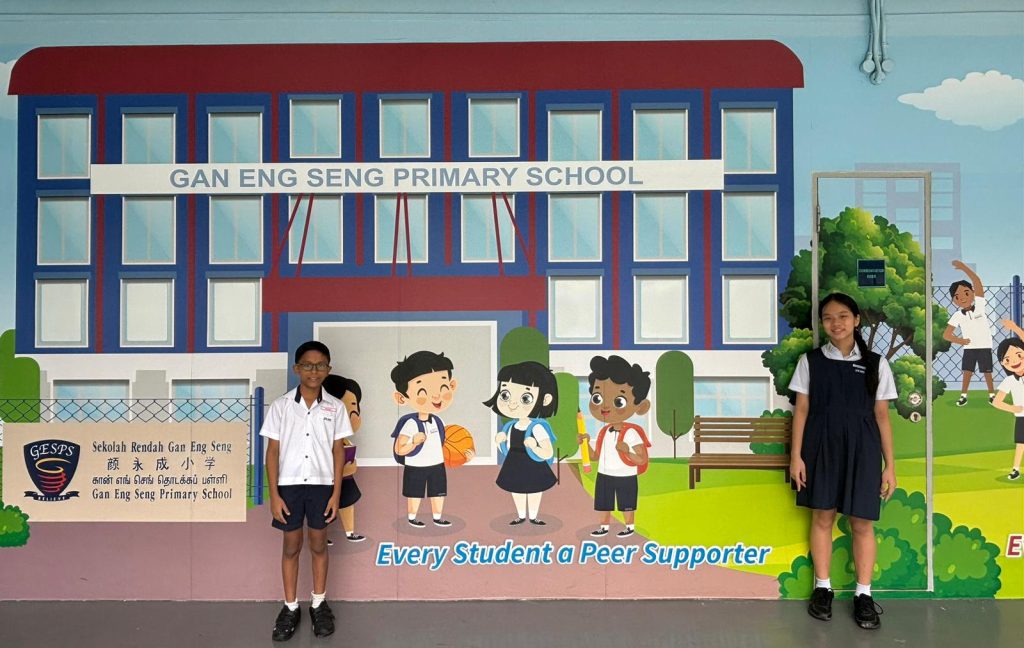
Inspired by the support they received, Shridev and Marie are now among the 44 students at GESPS trained as PSLs to render a helping hand to their peers.
“I’m inspired to be a PSL as I want to help others, especially if they’re feeling sad or lonely,” says 10-year-old Shridev, who believes that helping others is “a very important job”. “If no one helps those in need, schools will be a very sad place. With peer supporters, the school is a happy place.”
No one left behind
Structured into three tiers, the school’s Peer Support Programme is a holistic initiative designed to make “Every GESPian a Peer Supporter”. This means that every student in the school plays a role in fostering a supportive school environment, explains Mdm Nazreen Zainudeen, Head of Department of Student Management.
“I find it deeply satisfying and rewarding to see students step up to help others,” she says.
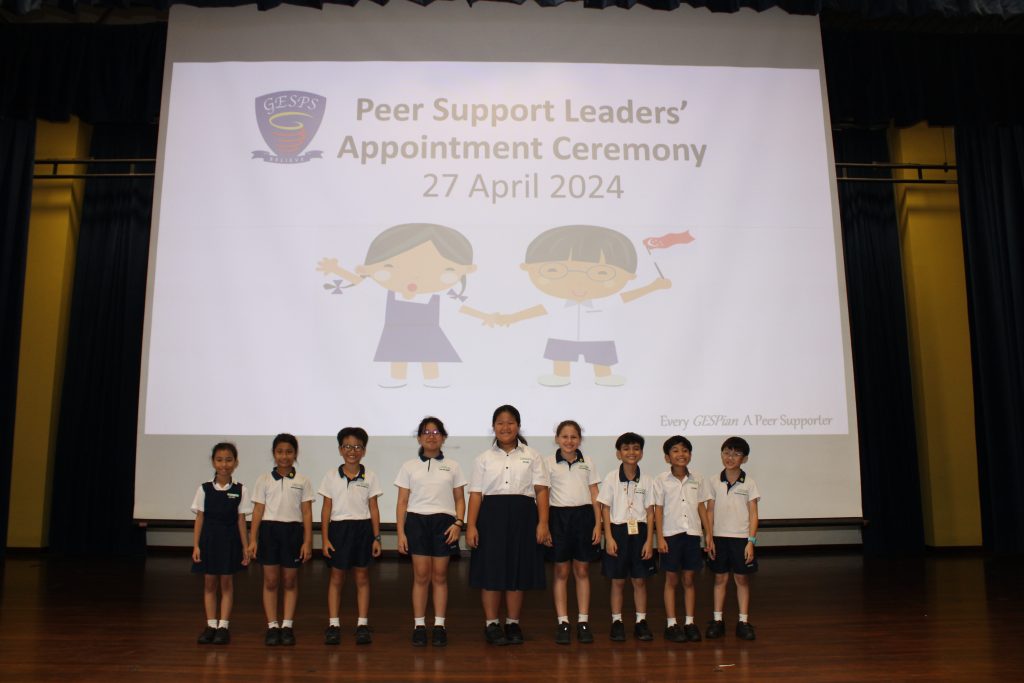
Tier 1 focuses on helping all students to develop age-appropriate peer bonding, helping, and influencing skills. For those ready to lead, Tier 2 offers a rigorous four-year training programme for PSLs. Tier 3’s “Circle of Friends” provides an additional layer of care for students requiring more personalised support.
Mdm Nazreen shares, “Given that half of our students come from families with limited parental support, peer support is not just important – it’s crucial. Students rely on their peers for emotional support, and that highlights the significance of the work we do in fostering a supportive school environment.”
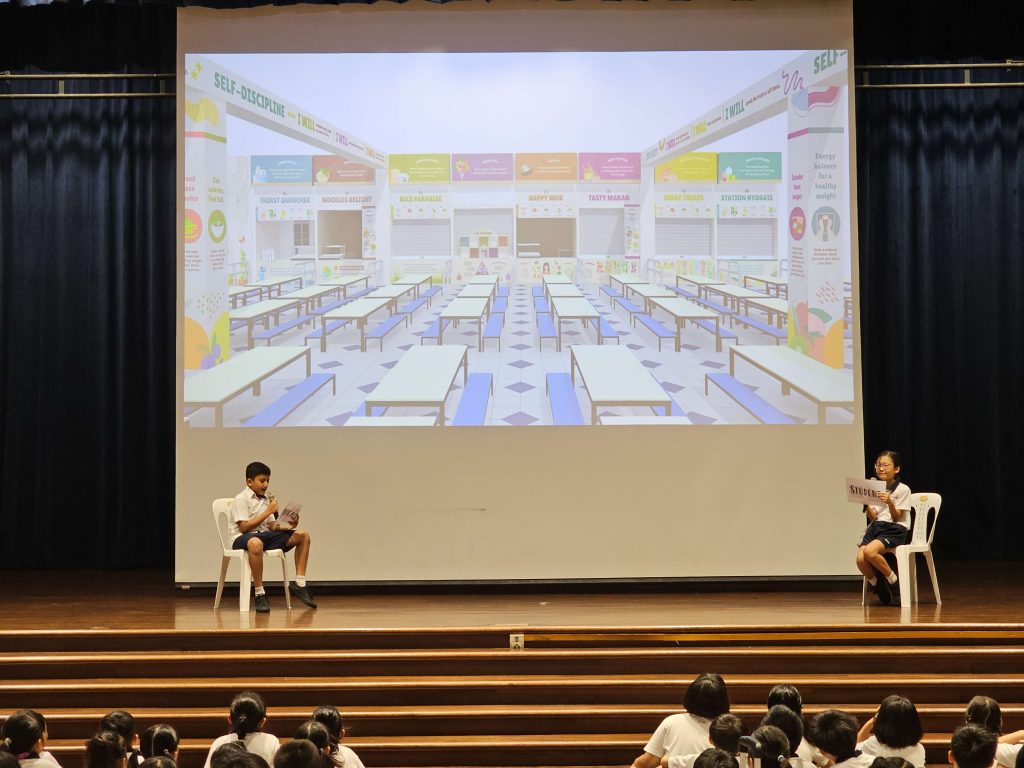
“I think the messaging is even more impactful when it comes from the students.”
Mdm Nazreen Zainudeen, Head of Department of Student Management
PSLs like Shridev and Marie are empowered to lead initiatives in school. For example, after embarking on a Cyber Security learning journey and receiving training on cybersecurity, they brought what they learnt back to school. In February this year, on Safer Internet Day, they shared messages on cyber wellness during assembly and facilitated activities during recess. Mdm Nazreen notes, “I think the messaging is even more impactful when it comes from the students.”
Moving forward, GESPS plans to deepen the programme by mapping peer networks with Sociograms (visual tools used to represent social links a student has) and pairing seasoned PSLs with newcomers for mentorship. There are also plans to partner other schools to enrich the peer support experience.
The making of a Peer Support Leader
Marie and Shridev say that PSL training sessions have benefitted them in many ways. For example, they can now recognise signs of distress in their peers, how to support them and most importantly, when to approach teachers for help. The PSLs gather once a month to undergo training and discuss potential case scenarios they may encounter in school, and how best to respond in those situations.
Mdm Nazreen emphasises that during training, PSLs are taught how to care for themselves too. “As they help others, they must also realise that there’s a limit to what they can do. For issues that they cannot manage, they are encouraged to approach the teachers for help,” she says.
Marie feels that being a PSL in the past four years has deepened her sense of empathy and ability to feel for others. The 12-year-old recounts an instance where she noticed a fellow student sobbing alone. Although Marie did not know the girl, she gently patted her on the back to comfort her. Later, she learnt that the girl had a disagreement with her best friend.
Using the tools that she learnt from her training, Marie gave the girl some helpful tips. “I suggested that she give her friend time to calm down before talking things out. If they tried to resolve things immediately, the situation might become more heated. Two days later, I saw that they were both friends again.”
Describing how she felt playing a role in helping the girls make up, Marie’s face lit up. “It made me happy to know that I helped someone in need, and that my PSL training really paid off.”
“I know I can get help from my peers, and learn from them too.”
Venkatesh Shridev, Peer Support Leader
With greater awareness of the importance of seeking support, the PSLs understand that they, too, can reach out to others – whether it’s their teachers, parents and peers – when they need help. “I learnt that it’s better not to keep things to yourself. It is important to find someone to talk to, especially when things start to feel a bit too hard or complicated,” says Marie.
Shridev shares the same sentiment, adding, “I know I can get help from my peers, and learn from them too.”




